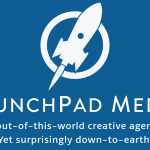SHARE:
Brainstorming ad slogans
Posted on December 22, 2011
Categories: Blog
How can you turn a company’s image into a catchy tagline?
How can you tell if a slogan will keep its sparkle over time, and not get dull with repetition?
In the art of slogan-writing, there are more exceptions than rules. But here are some things to consider when slogging through possible slogans:
Does it evoke a good feeling? A slogan should not be an empty platitude. It might resonate as something hopeful, like the Army’s “Be all that you can be.” Or it can inspire the imagination, like DeBeers’ “A diamond is forever.” Or it could tickle the funny bone, like Almond Joy’s: “Sometimes you feel like a nut, sometimes you don’t.” But people should feel something.
Is it sweetly succinct? A slogan shouldn’t be too wordy. One of the longest is 13 words: “There are some things that money can’t buy. For everything else there’s MasterCard.” One of the shortest: “Got milk?”
Does it convey your benefits? It’s hard to sum up product advantages in a few words. Federal Express did it in 1982: “When it absolutely, positively, has to be there overnight.” GEICO did it: “So easy a caveman can do it.” Sometimes it’s the ingredients, as with Snapple: “Made from the best stuff on Earth.” It can also describe a specific need, like NyQuil: “The nighttime sniffling sneezing coughing aching stuffy head fever so you can rest medicine.” Mrs. Paul’s fish fillets wanted contrast with competitors, thus its slogan: “Because not all fish sticks are created equal.”
Does it connect with targeted consumers? Nintendo Wii advertised, “Wii would like to play.” NBC claimed to offer “Must-see TV.” The National Cattlemen said, “Beef. It’s what’s for dinner.” Sometimes the slogan sells the customer, not the product, like McDonald’s, “You deserve a break today” or Tuxedos Chocolate Almonds, “You’re Worth It.”
Does it convey ‘tude? Toyota summed up its brand in 1980: “Oh, what a feeling!” Office Depot made its claim to fame in a matter-of-fact way: “Taking Care of Business.” Lay’s Potato Chips posed a challenge: “Betcha can’t eat just one.” And slogans can be very assertive about when you should use the product, like with Armour Star’s canned foods: “Any time is Armour time.”
Will it not become dated? An ideal tagline will be timeless. For example, “With a name like Smuckers… it has to be good.” By contrast, The New York Times claims to have “All the news that’s fit to print.” With the word “print,” their boast seems increasingly quaint, not ambitious.
Does it work in a continuing campaign? Slogans can be quite temporary. At LaunchPad we make them up for National Sales Meetings, web ads, sweepstakes and contests… But if you’re trying to develop a corporate slogan that can be used long-term, you must consider many potential sales angles. For example, when Wheaties used the slogan “Breakfast of Champions” in 1935, that dictated what was to follow — putting famous athletes on the cereal boxes. Vlasic pickles has used variations of its slogan that there is a “big pickle crunch in every bite.”
Does it energize your company? A smart slogan will not only motivate customers, it will boost employee morale. BMW workers felt pride in their company’s claim, “The ultimate driving machine.” The people at Abbott Labs take seriously their slogan, “A promise for life.”
When brainstorming slogans, it’s rare that everyone involved will love the same one. But, at some point, decision-makers need to follow the advice in Nike’s slogan: “Just do it.”
Alex Poulos is president of LaunchPad Media, an interactive creative agency in Watertown, MA.
Blog Posts

Social Media Workshop
June 10, 2012
Spooked by recession?
October 24, 2011
What is your Web Personality?
July 14, 2011
Recent Posts

Sample Project
January 8, 2015

Social Media Workshop
June 10, 2012

Alex Poulos has op-ed in MetroWest Daily News
March 19, 2012
Successfully Staging a Super Show
February 22, 2012
Jinglicious Video Contest
January 15, 2012